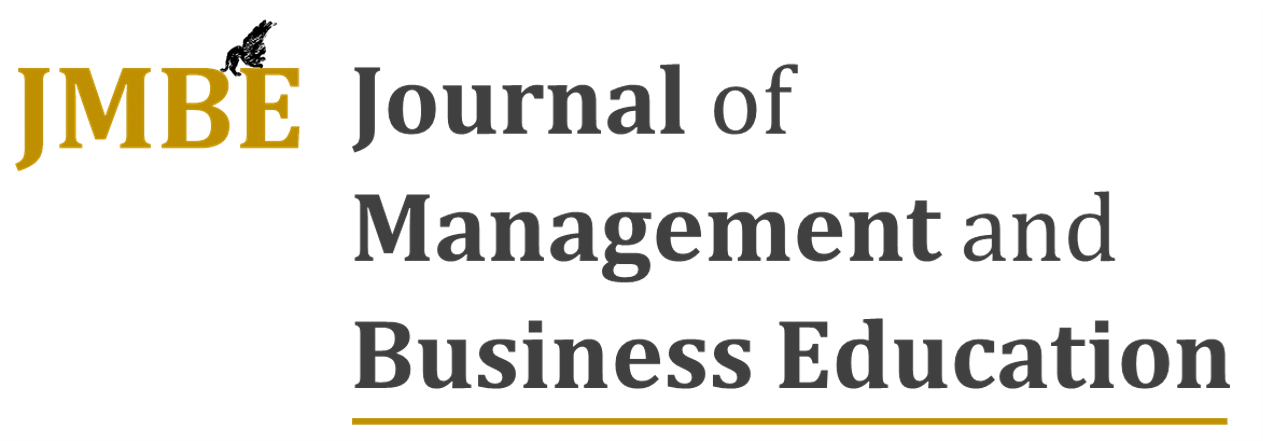Developing accounting reports to establish accounting organizational capacity
DOI:
https://doi.org/10.35564/jmbe.2018.0004Keywords:
educational innovation, accounting strategy, motivation, accounting, professional skillsAbstract
At present, university education is based on the teacher explains a theoretical-practical concepts corresponding to the subject, and in this way the students appropriately get that knowledge. However, students believe that teaching should be more focused on business practice, in order to maintain a high motivation to learn and strengthen their knowledge. For this reason teachers are constantly evolving and looking new techniques to increase their motivation and improve their professional skills. Therefore, our research has been based on formulating an accounting practice that meets the demands of the professional market. The student was given some accounting reports with continuous operations of real companies. The research´s objective was to propose the students a correct strategy to carry out all the accounting operations of the company, accounting the future operations of it, since in case of that would be penalized considerably. In this way, it was intended to increase the degree of motivation of the student within the subject, in order to improve the accounting skills of the same.
Downloads
References
Badía, A.; & García, C. (2006). Incorporación de las TIC en la enseñanza y el aprendizaje basados en la elaboración colaborativa de proyectos. RUSC. Universities and Knowledge Society Journal, 3(2).
Camiña, C.; Ballester E.; Coll C.; & García E. (2003). Mitos y realidades de la innovación educativa. XI Congreso Universitario de Innovación Educativa en las Enseñanzas Técnicas, Vilanova i la Geltrú, Julio.
Cuadrado, G.I.; & Fernández, A.I. (2008). Nuevas Competencias del Profesor en el EEES: Una Experiencia de Innovación Docente. Revista Electrónica Teoría de la Educación. Educación y Cultura en la Sociedad de la Información, 9 (1), 197-211.
Díaz Tremarias, M.; & Noriega Velásquez, T. (2009). Utilización de videos didácticos como innovación en la enseñanza de la toxicología: an innovatory tool in Toxicology teaching. Educación Médica Superior, 23 (3).
Escobar, B.; & Lobo, A. (2005). Juegos de simulación empresarial como herramienta docente para la adaptación al espacio europeo de educación superior. Cuadernos de Turismo, 16, 85-104.
Fidalgo, A. (2011). La Innovación Docente y los Estudiantes. La Cuestión Universitaria, 7, 84-91.
Gallego, M.J. (2007). Las funciones docentes presenciales y virtuales del profesorado universitario. Revista Electrónica de Teoría de la Educación. Educación y Cultura en la Sociedad de la Información, 8 (2), 137-161.
Gómez, I.D. C.; & Pérez, R. C. (2015). Del vídeo educativo a objetos de aprendizaje multimedia interactivos: un entorno de aprendizaje colaborativo basado en redes sociales. Tendencias Pedagógicas, 22, 59-72.
Gómez, M. E.; Contreras, L.; & Gutiérrez, D. (2016). El impacto de las tecnologías de la información y la comunicación en estudiantes de ciencias sociales: un estudio comparativo de dos universidades públicas. Innovación Educativa, 16 (71).
Imrie, B.C.; Durde, J.; & Cadogan, J.W. (2000). Towards a conceptualization of service quality in the global market arena. Advances in International Marketing, 10 (1), 143-162.
López, R.J.I. (1999). Conocimiento docente y práctica educativa. El cambio hacia una enseñanza centrada en el aprendizaje. Málaga, Ed. Aljibe.
Michavila, F. (2009). La Innovación Educativa. Oportunidades y Barreras. ARBOR Ciencia, Pensamiento y Cultura, CLXXXV EXTRA, 3-8.
https://doi.org/10.3989/arbor.2009.extran1201
Ortega, I. (2007). El tutor virtual: Aportaciones a los nuevos entornos de aprendizaje. Revista Electrónica de Teoría de la Educación. Educación y Cultura en la Sociedad de la Información, 8 (2), 100-115.
Ozment, J.; & Morash, E.A. (1994). The augmented service offering for perceived and actual service quality. Journal of the Academy of Marketing Science, 4 (22), 352-363.
https://doi.org/10.1177/0092070394224004
Reverte, J. (2007). El aprendizaje basado en proyectos como modelo docente. Experiencia interdisciplinar y herramientas groupware. XIII Jornadas de Enseñanza Universitaria de la Informática.
Rodríguez, E.; Vargas, E.M.; & Luna, J. (2010). Evaluación de la estrategia: aprendizaje basado en proyectos. Educación y educadores, 13 (1).
Salinas, J. (2004). Innovación docente y uso de las TIC en la enseñanza universitaria. RU&SC. Revista de Universidad y Sociedad del Conocimiento, 1 (1), 1-16.
Salinas, J. (2008). Innovación educativa y uso de las TIC. Universidad Internacional de Andalucía.
Sylwester, R. (2008). Alphabetize entries from how to explain a brain. The Jossey-Bass Reader on the Brain and Learning, 20-30.
Tejada, F.J. (2002). El Docente Universitario ante los Nuevos Escenarios: Implicaciones para la Innovación Docente. Acción Pedagógica, 11 (2), 30-42.
Valerio Ureña, G.; & Rodríguez Martínez, M.C. (2017). Perfil del profesor universitario desde la perspectiva del estudiante. Revista Innovación Educativa, 17(74), 109-124.
Downloads
Published
How to Cite
Issue
Section
License
Copyright (c) 2023 Journal of Management and Business Education

This work is licensed under a Creative Commons Attribution-NonCommercial-ShareAlike 4.0 International License.
License terms at: https://creativecommons.org/licenses/by-nc/4.0/legalcode




